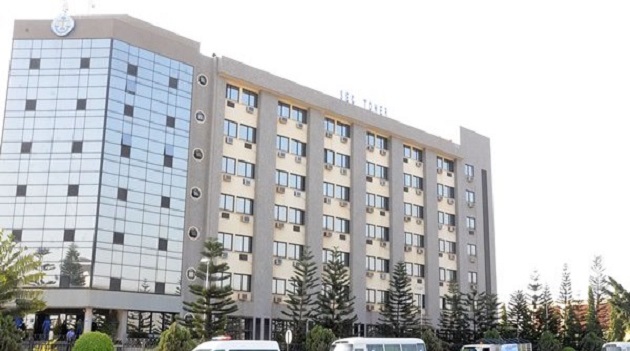E-Financial
SEC Issues Rules on Issuance, Allotment of Private Companies’ Securities

The Securities and Exchange Commission (SEC) has unveiled new rules on Issuance and Allotment by Private Companies Securities. The rules declared that any person who issues or allots securities without its prior approval or violates any provisions of its regulations would be liable to a penalty not less than N10 million in the first instance and a further sum of N100,000 for every day the violation continues.

The recommended fine is contained in the proposed new rules on the issuance and allotment of private companies and securities prepared by the Securities and Exchange Commission.
The rules apply to debt securities issuances by private companies either by way of public offer, private placement or other methods as may be approved by the Commission; Registered exchanges and platforms which admit debt securities issued by private companies for trading, price discovery or information repository purposes; Registered capital market operators who are parties in issuances and allotment of debt securities of private companies.
The Commission, which set out stringent punishment for those who violate the regulation, stated: “Any person who issues or allots securities without the prior approval of the Commission, or violates any provisions of these rules shall be liable to any one or more of the following sanctions: i. A penalty of not less than N10 million in the first instance and a further sum of N100,000 for every day the violation continues; ii. Suspension, or withdrawal of the registration of the capital market operator(s) involved; iii. Disgorgement of proceeds/income from the transaction; and iv. The Commission may ratify or rescind a transaction if it is in the interest of the public to do so; v. Any other sanction the Commission deems fit in the circumstance.”
The document stated that a private company may list its securities on a registered securities exchange, adding that such securities must be listed not later than 30 days after completion of allotment.
SEC explained that for a private company to be eligible to issue securities under the regulations it must be a company duly incorporated under Companies and Allied Matters Act (CAMA), or other enabling Laws with at least three years track record of operation.
The regulations pegged the maximum amount a private company can raise within a one-year period at N15 billion provided that where a private company intends to undertake any further debt securities issuance, it shall be required to re-register as a public company.
E-Financial
Ecobank Plans to Raise $250m Capital Through Private Placement

Ecobank Transnational Incorporated announced its plan to raise up to $250m in Additional Tier 1 capital through a private placement of contingent convertible notes.

In a statement filed on the Nigerian Exchange Limited recently, the capital raise was approved by shareholders at the company’s Extraordinary General Meeting held in Lomé, Togo. The private placement offer was launched on July 9 and will run for ten days.
“Following the approval of the shareholders at its Extraordinary General Meeting held on May 28, 2025, in Lomé, Togo, to raise up to $250m in additional Tier 1 capital qualifying instruments via a private placement of contingent convertible notes, Ecobank Transnational Incorporated announces the launch of the AT1 effective July 9, 2025, for ten days. Renaissance Capital Africa has been appointed as the transaction adviser to ETI.”
The move is an initiative aimed at strengthening Ecobank’s capital adequacy, enhancing financial resilience, and supporting its long-term growth ambitions across its diversified pan-African banking platform.
Additionally, Madibinet Cisse, Ecobank’s Company Secretary, said, “This proposed capital raise represents a critical step in our efforts to fortify the bank’s financial foundation and support sustainable growth across Africa.”
It would be recalled that Ecobank Transnational Incorporated, the parent company of the Ecobank Group, has raised an additional $125m through a Eurobond tap, bringing the total size of its 2029 notes to $525m.
E-Financial
EFCC Recovers Funds Lost to CBEX Fraud

Ola Olukoyede, chairman, Economic and Financial Crimes Commission (EFCC), has announced that the body has recovered lost funds from the CBEX fraud scheme.

Olukoyede did not announce the amount recovered, but he assured Nigerians that the EFCC is taking action against the promoters of the scheme.
The EFCC Chairman emphasised that the suspects found are facing prosecution.
“We have found a lot of people culpable. Those who promoted that scheme are within our jurisdiction and have been arrested. So, at this moment, they are being prosecuted. And we can also say that money has been recovered, even though the process is still ongoing for us to finally forfeit it,” he said.
Olukoyede also urged Nigerians to exercise caution when investing their resources into online platforms.
“Ponzi schemes remain one of the most pervasive threats facing unsuspecting investors. The CBEX case is a clear example. We all remember the outcry that followed the collapse of the scheme, but these unfortunate situations are preventable. Nigerians must begin to conduct due diligence before committing their resources to such platforms,” Olukoyede said.
He also stressed that the body remains committed to fishing out the culprits and recovering the lost funds.
“It was only when the bubble burst that people wanted EFCC to perform magic and recover their money. In the case we investigated in Lagos, which we dubbed Operation Flush, we arrested a large number of foreigners involved in various cybercrimes, including CBEX. I want Nigerians to know that as of today, we have secured close to 150 convictions. Some of them are already serving their jail terms. And when they are through with that, we are going to send them back to where they came from. So we are monitoring them,” he added.
He urged the public to stay vigilant, assuring them that the body will see the case to the end.
“We are no longer the EFCC that drops cases halfway. Whatever we start, we will finish. Nigerians should trust us and believe in our capacity to do justice. Some of these cases are complex and may require cross-border investigations, but we are up to the task,” he said.
E-Financial
Financial Fraud in Nigeria Surges by 45 Percent, 70 Percent of Losses Linked to Digital Platforms – CBN

Central Bank of Nigeria (CBN) has raised the alarm over a significant rise in financial fraud cases in the country, revealing that fraud surged by 45% within one year, with 70 Percent of the resulting losses traced to digital channels, particularly unregulated virtual asset platforms.

Olayemi Cardoso, governor, CBN,
This was disclosed by Olayemi Cardoso, governor, CBN, in a speech delivered on his behalf by Muhammad Sani Abdullahi, deputy governor for Economic Policy, at a public lecture organized by the Economic and Financial Crimes Commission (EFCC) on Thursday in Abuja.
He added that findings from the CBN’s Financial Stability Report 2024 reveal a sharp increase in fraud.
“The CBN Financial Stability Report 2024 reveals a 45% surge in financial fraud cases, with 70% of losses linked to digital channels, including unregulated virtual asset platforms. Furthermore, over 30 Ponzi-style investment schemes exploiting digital currency narratives have been flagged by the SEC and other agencies.
“These developments pose major risks, including loss of consumer confidence, weakening of financial integrity and reputational challenges for Nigeria in the global financial system.
“In Nigeria, over $56 billion in crypto-related transactions were recorded between July 2022 and June 2023, making us Africa’s digital transaction leader. But this growth is not without consequences,” Cardoso stated.
Cardoso noted that while digital innovation has enabled broader financial inclusion, it has also introduced complex regulatory and security challenges.
“The present era of rapid technological transformation has made the adoption of digital financial services in Nigeria, including cryptocurrencies and tokenized investments, increase exponentially.
“The surge in digital innovation has brought benefits, such as greater financial inclusion and also given rise to complex challenges, such as fraud and money laundering,” he stated.
Emomotiti Agama, director general, Securities and Exchange Commission (SEC), emphasized the growing risks posed by virtual asset fraud to investor confidence and market integrity.
“Corruption remains a significant impediment to Africa’s economic growth, social development, and investor confidence.
“Today, as digital innovation transforms financial systems, we face new challenges, particularly the rise of virtual asset fraud and sophisticated investment scams, exploiting unsuspecting investors.
“These threats undermine market integrity, erode trust, and divert resources meant for sustainable development,” he said
Agama reiterated the SEC’s dedication to enhancing investor protection through increased education and awareness on how to identify and avoid fraudulent schemes.
He also emphasized the Commission’s efforts to update regulatory frameworks in response to emerging risks in virtual assets and digital investments, while promoting international cooperation to tackle corruption and illicit financial flows.
Malam Lanre Issa-Onilu, director general, National Orientation Agency (NOA), commended the EFCC for its efforts in combating financial crimes. He warned that the human cost of fraud extends far beyond the financial system.
“Experience has shown that deception is foundational to fraud, and if its impact goes far deeper, it undermines citizens’ confidence in their country. Every Naira lost to fraud causes far-reaching effects.
“It is about a child pulled out of school, a livelihood ruined, and an enterprise destroyed. These crimes are not abstract. They affect people, and our country pays dearly for it.”
He said the NOA had launched a nationwide campaign against the “get rich quick” mentality among Nigerians.
“At the National Orientation Agency, we believe that value orientation is our most powerful tool. That is why we launched a nationwide campaign several months ago against the spread of get-rich-quick syndrome. The initiative is helping all Nigerians, especially young people, to understand that lasting success comes from honesty and hard work, and it takes time.”
Hussaini Ishaq Magaji, registrar general, Corporate Affairs Commission (CAC), stressed the need for regulators, institutions, and stakeholders to remain vigilant and proactive in addressing emerging threats such as fraud, money laundering, and financial manipulation.
Magaji noted the CAC’s ongoing collaboration with the Securities and Exchange Commission (SEC) and other sector-specific regulators to strengthen corporate governance and enforce compliance, ensuring transparency and accountability within Nigeria’s financial ecosystem.

 E-Financial2 days ago
E-Financial2 days agoGOEs’ Remit Over ₦2tn to FG in 2024

 Telecom2 days ago
Telecom2 days agoSave & Win: FCMB Promo Makes 12 Millionaires, Over 3,000 Winners

 Telecom2 days ago
Telecom2 days agoMTN’s Karl Toriola and Business Leaders Champion Corporate Climate Reform

 General News2 days ago
General News2 days agoSenate Orders Full Probe into N1.3 Trillion CBEX Ponzi Scandal

 News1 day ago
News1 day agoCheck Point Report Finds Africa as Top Target for Cyber-attacks

 E-Business2 days ago
E-Business2 days agoNITDA Reaffirms Commitment to 95% Digital Literacy by 2030, as UBEC Pledges Collaboration

 General News2 days ago
General News2 days agoUpSkill Universe Launches ‘Skills for Business’ to Empower 10,000 African SMEs, in Collaboration with HP and Google

 Telecom2 days ago
Telecom2 days agoAnambra Deepens Digital Reforms, Eyes Top Ranking in Ease of Doing Business



























